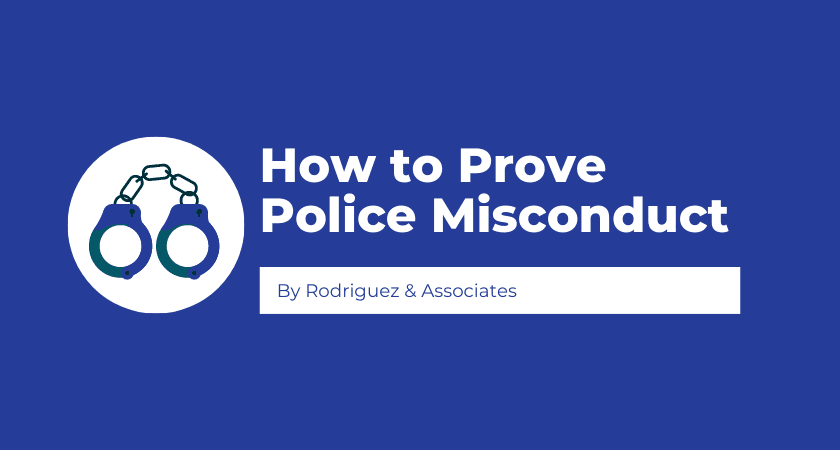Police misconduct occurs when a law enforcement officer commits an illegal act or exhibits inappropriate conduct when carrying out his or her official duties. From acts of police brutality to fraud or coercion, police misconduct can cause serious physical and psychological harm. If you believe that you are the victim of police misconduct, there are a number of steps you will need to take to protect your rights and prove your case with the help of a Bakersfield police misconduct lawyer.
Proving a Case of Police Misconduct
There are multiple pathways you can take to file a complaint against a police officer who commits an act of misconduct.
- You can file an internal complaint through the officer’s police department.
- You can file criminal charges against the officer through a state district court. If your case involves certain issues, such as the use of excessive force, you can press charges at the federal level by filing a United States Department of Justice (DOJ) complaint.
- You can pursue compensatory damages against the police officer by filing a lawsuit against him or her in your state’s civil court.
You can pursue civil and criminal charges against the offending officer simultaneously since they involve two separate proceedings in two types of courts. The burden of proof, or the evidence you will need to establish to prove that misconduct occurred, will differ based on the pathway you choose.
Internal investigations involve their own burden of proof, and you will need to speak to your local police department to determine how to file a complaint. If you are pursuing criminal charges, you will typically need to prove that the following elements are true beyond a reasonable doubt.
- The officer deprived you of a right protected under the Constitution or U.S. law.
- The officer acted willfully.
- The officer was acting under the color of the law, or the officer appeared to act within the law while violating it.
In a California civil lawsuit, you do not need to prove that the officer violated your rights to receive a settlement. Instead, you will need to prove the officer’s liability by establishing a preponderance of the evidence, or that the officer more likely than not committed the misconduct involved in your case.
To accomplish this, you will need to gather enough evidence to prove the misconduct occurred. Different types of police misconduct are subject to specific legal considerations, so it is best to speak to a California police misconduct attorney as soon as possible. Your attorney will help you determine which pathway is right for you and advise you on how to best approach your claim.
What to Do After Experiencing Police Misconduct
Regardless of the type of charges you wish to pursue, there are a number of steps you will need to take to preserve evidence after experiencing an act of police misconduct. As soon as possible after the misconduct, take the following steps.
- Write down a detailed description of the misconduct, including any quotes you remember verbatim. Only write down facts you know to be true.
- If you suffered any injuries, take pictures of them and seek medical care. Save all documentation from your visits.
- Gather the contact information of any witnesses and preserve any physical evidence.
- Contact a police misconduct attorney as soon as possible.
Speaking to a lawyer is vital to police misconduct cases. Your attorney will help you gather evidence, advocate for your rights during each step of the process, and craft a compelling case while adhering to specific legal requirements.
Different lawyers handle criminal and civil cases, but you can pursue both claims simultaneously. If you wish to file a civil lawsuit or criminal charges against the offending officer, contact the appropriate lawyer as soon as possible.
